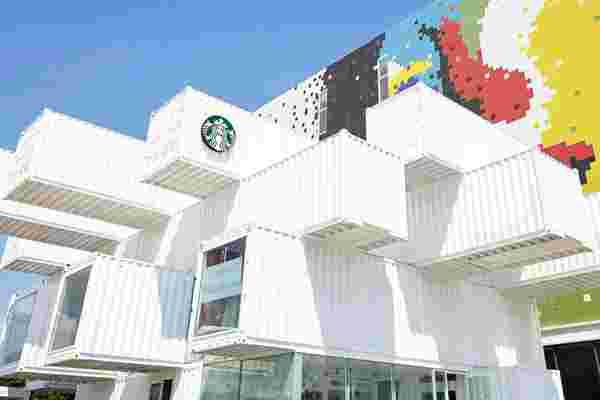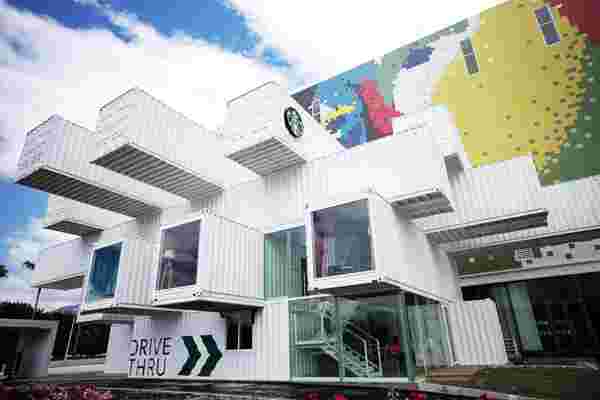
Cafe’s have surely and steadily integrated themselves into our lifestyle, from quick pit-stops to refuel our caffeine hit to leisurely catching up with people or even a book. Cafe’s have been designed to replace that warmth we crave on a rainy day, with the smell of coffee enticing you all the way, and this particular collection of designed spaces are here to redefine the traditional coffee space. Breaking the traditional warm palette of Starbucks, we have this design constructed completely from recycled shipping containers, a cafe that is build using cardboard to ones that even feature koi ponds inside them, these cafes will surely bring you zen while you sip on that perfectly brewed drink.

Japanese architect Kengo Kuma has stacked 29 recycled shipping containers to make a Starbucks coffee shop alongside a shopping center in Hualien, Taiwan.
Facebook is opening up five pop-up cafes across UK where users can get a check on their privacy settings while getting a free cup of coffee! Facebook hopes that these cafes will help increase awareness on how easy it is to set up their privacy settings, helping users know who exactly can see their data.
Indian architecture studio Nudes has built an entire cafe in Mumbai using cardboard to design the space. Everything apart from Cardboard Cafe’s core, shell and services in the cafe have been made from cardboard. Walls, chairs, tables and even lampshades have all been sculpted from pieces of the corrugated material.
The Waveon cafe in Gijang, South Korea is made up of a series of enormous concrete volumes that are stacked and rotated to optimize views of the East China Sea by Heesoo Kwak and IDMM Architects.
La Linda is an artisanal cafe and bakery built within a 1927 garden house in Uruguay’s capital by Pedro Livni Arquitecto.
Italian architect Giuseppe Gurrieri designed the eco-bar with folding exterior wall panels along the side of the building that faces the road, creating the occasional tables.
The Hanoi Cafe in Vietnam features a fish pond, an indoor waterfall and a rooftop vegetable patch that exists in a self-sustaining eco-system by the Farming Architects.
A former power station in Melbourne has been converted into a cafe and restaurant with exposed brickwork and a modern grungy vibe by Collingwood-based DesignOffice.
Wes Anderson’s film, The Grand Budapest Hotel is the inspiration for the Budapest Cafe in Chengdu, China and utilizes marble surfaces with geometric elevations and pastel hues to evoke that feel by Biasol.
This laundromat in New York includes lounge areas and a coffee shop, as a welcoming alternative to other coin-operated wash places common across the city by Sisters Corinna and Theresa Williams.
